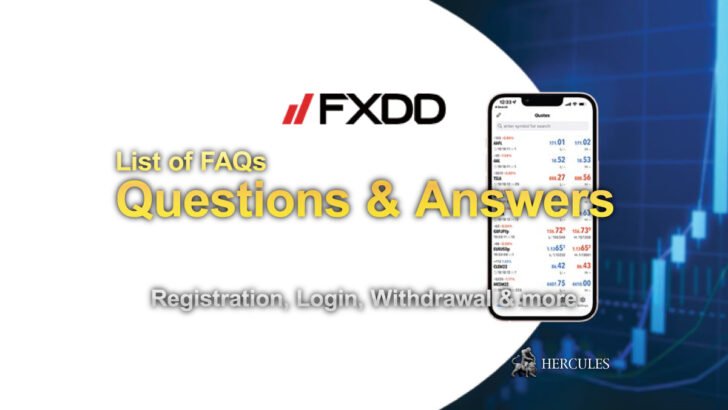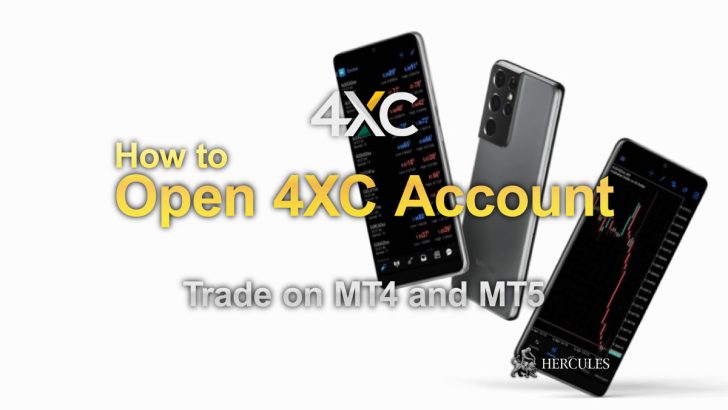Categories
Guide to Forex Arbitrage Trading in Cryptocurrency and Stock markets
Arbitrage trading is a strategy involving buying an asset at a lower price from one market and selling it at a higher price in another.


Arbitrage Trading: Meaning, Types and Strategies
Arbitrage is a financial trading strategy aimed at taking advantage of price differences of the same asset in different markets or platforms. Traders buy an asset in a cheaper market and sell it simultaneously in a more expensive one, profiting from the price discrepancy.
Go to EXNESS’s Official Website
The Basics of Arbitrage
Imagine physical retailers like car dealers who purchase used vehicles at a low cost in one country, only to sell them at a higher price in another. This is a practical example of arbitrage.
The world of financial trading is filled with similar scenarios. From stocks to currencies, derivatives, and cryptocurrencies, arbitrage opportunities are vast and diverse. For instance, if a company’s stock is trading at $5 on the New York Stock Exchange and at $4.7 on the London Stock Exchange, an arbitrage trader could potentially make a profit by buying the cheaper stock and selling it where it is more expensive.
The efficacy of arbitrage trading heavily relies on the speed of transaction execution. Traders often use powerful computers, high-speed internet, and automated trading programs to enhance the speed and efficiency of their operations. Manual arbitrage, however, can still be profitable in relatively new markets such as cryptocurrencies.
Try Arbitrage Trading with EXNESS
Understanding Crypto Arbitrage
In the realm of cryptocurrency, arbitrage trading primarily involves purchasing a particular cryptocurrency from one exchange and selling it on another where the price is higher. This strategy demands that a trader has deposits on at least two different crypto exchanges.
Since the crypto market is highly volatile and relatively under-regulated, significant price discrepancies can persist longer than in developed markets like the stock or currency exchanges. These factors, combined with low market liquidity, make it possible for traders to profit from crypto arbitrage.
Risks in Crypto Arbitrage Trading
Despite its potential profitability, crypto arbitrage is not without risks. Security and timing are two critical factors in this regard.
Crypto arbitrage traders face risks of fraud associated with hacking of accounts and crypto exchanges. They also stand the risk of losing their funds if a crypto broker behaves dishonestly and absconds with clients’ money. Due to the loosely regulated nature of the cryptocurrency market, it is vital for traders to focus on security measures, such as choosing reputable brokers and protecting their accounts with additional verification layers.
Timing also presents a significant risk in crypto arbitrage. As the discrepancy between asset prices decreases over time, the potential for profit diminishes. Therefore, traders often resort to advanced techniques such as the use of automatic scanners to identify arbitrage opportunities and specialized programs to execute trades.
Go to EXNESS’s Official Website
Arbitrage Opportunities in the Stock Market
In the stock market, arbitrage opportunities are also prevalent and can be categorized into five types:
- Inter-exchange arbitrage:
- This involves tracking the difference in the price of the same asset across various exchanges.
- Intra-industry arbitrage:
- This refers to the tracking of price divergences between highly correlated assets like shares of companies in the same industry.
- Equivalent arbitrage:
- Traders monitor the price difference between the underlying asset and its derivative.
- Calendar arbitrage:
- This strategy involves tracking the price difference between futures with different expiration dates for the same asset.
- Statistical arbitrage:
- This is based on the principle of price reversion to the average value.
Try Arbitrage Trading with EXNESS
How to Do Arbitrage Trading
Successful arbitrage trading involves several strategic steps:
- Determine whether to engage in manual or automatic transactions.
- Choose a market that matches your transaction type and commission capacity.
- Compare potential profits in a trade with the cost of its conclusion.
- Identify and assess the risks associated with the trade.
- Make a series of trades on a demo account to compare actual profits with planned ones.
- If results are positive, initiate trades on a real account with minimum volume.
- If satisfied with the outcome, switch to standard volumes on a real account.
Arbitrage trading presents a unique dilemma: investing in equipment for automated trading versus investing in skills for manual trading. While automated trading requires a larger deposit or more trades for a good return rate, manual arbitrage requires a standard trading deposit.
Like any trading strategy, arbitrage comes with risks that must be carefully considered. However, the cryptocurrency market, with its low competition and underdevelopment, promises promising opportunities for both automatic and manual arbitrage.
Go to EXNESS’s Official Website
FAQs to summarize the article
- Can you provide an example of arbitrage trading?
- A typical instance of arbitrage trading might involve buying Euros (EUR) on the London Stock Exchange at a less expensive rate, and simultaneously selling EUR on the New York Stock Exchange where the rate is higher, provided both transactions involve the same volume.
- Is it lawful to engage in arbitrage trading?
- Absolutely. Arbitrage trading is entirely legal and actually contributes positively to financial markets by enhancing their liquidity.
- How does the mechanism of arbitrage trading function?
- Arbitrage trading operates on the principle of buying an asset at a lower price from one market and simultaneously selling it at a higher price on another market. Traders either need to close their trades when prices converge or cover a sale with an asset that was purchased at a lower price from a different market to realize a profit.
- Is arbitrage trading a straightforward process?
- While arbitrage trading might seem simple in theory, in practice, it requires a certain level of expertise from traders. This kind of trading necessitates identifying appropriate assets, which are becoming rarer due to increasing liquidity, calculating the viability of a trade factoring in costs, and effective risk management.
- Is it possible to lose money in arbitrage?
- Indeed, losses can occur in arbitrage trading if the asset purchased at a lower price depreciates further or if the asset sold at a higher price appreciates in value. Losses might also result if the costs associated with transferring the purchased asset from one market to another surpass the profit gleaned from arbitrage.
- How is arbitrage trading manifested in Forex?
- In the context of Forex trading, arbitrage involves the execution of opposing trades on the same asset when its price varies across different markets or among different liquidity providers.
- Is arbitrage trading a viable strategy?
- Arbitrage trading can certainly work. However, it does require a substantial deposit due to the low profit margin of approximately 0.5%. It also necessitates research to find the assets whose profitability will offset the costs.
- Is arbitrage trading a profitable venture?
- Arbitrage trading can be profitable, but as markets mature and become more efficient, the opportunities for arbitrage dwindle. Therefore, arbitrage strategies are often more effective in the cryptocurrency market than in the stock market.
- How does one become an arbitrage trader?
- Becoming an arbitrage trader entails opening a trading account, learning to spot price disparities for the same asset across different markets, and acting promptly. The speed of executing arbitrage transactions has a direct bearing on the profitability of this form of trading.
- What is crypto arbitrage?
- Crypto arbitrage is a strategy that involves purchasing a cryptocurrency at a lower price on one exchange and simultaneously selling the same cryptocurrency at a higher price on another exchange.
- What advantages does arbitrage trading offer?
- Arbitrage trading presents daily opportunities for trades and usually entails lower risk than directional trading. To profit as an arbitrage trader, you don’t need to develop a unique trading strategy; it suffices to find a reliable arbitrage robot and the capacity to rapidly acquire quotes.
- Are there any risks associated with arbitrage?
- Yes, arbitrage does come with its set of risks, primarily linked to execution. These include the risk of slippage and requotes, which lead to trades being executed at less favorable prices than initially planned. Given that the average profit from an arbitrage trade is a few pips, even a one pip discrepancy between the intended and actual prices can significantly impact the outcome.
- Is arbitrage a long-term investment strategy?
- Not usually. Arbitrage trades tend to be short-lived, with profits accruing from a high volume of transactions rather than long-term investments.
- How can I perform crypto arbitrage?
- To engage in crypto arbitrage, you need to identify two cryptocurrency exchanges that quote different prices for the same cryptocurrency. Then, you purchase the cryptocurrency from the exchange where it’s priced lower while concurrently selling it on the other exchange where its price is higher.
- How can I carry out triangle arbitrage?
- To illustrate, if the current EUR/USD exchange rate is 1.10 and the AUD/USD exchange rate is 0.68, the calculated price of EUR/AUD should be 1.10/0.68 = 1.62. If the real price of EUR/AUD exceeds the calculated value, you should buy EUR/USD and sell AUD/USD and EUR/AUD. If the opposite is true, sell EUR/USD and buy AUD/USD and EUR/AUD.
- When does an opportunity for arbitrage arise?
- Arbitrage opportunities present themselves when an asset trades at different prices on different markets and when the profit from the arbitrage trade exceeds transaction costs.
- What is the concept of arbitrage pricing?
- Arbitrage pricing refers to the circumstance when an asset’s price, which isn’t uniformly the same across all markets, becomes subject to the arbitrage actions of investors. As a result, demand for the asset escalates where it is cheaper, and supply swells where it is pricier.
- What factors can lead to arbitrage transactions?
- Arbitrage transactions can occur due to variations in the liquidity of markets trading the same asset. They can also arise from discrepancies in quote acquisition speeds among different brokers, which may stem from the distance to the servers of liquidity providers or the quality of the equipment being used.












